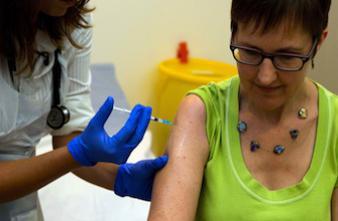Vaccines have also reduced the incidence of many serious diseases by 90 to 99%.


Dossier produced in partnership
with Science and Health,
the Inserm magazine
Vaccines have contributed to the drastic reduction, or even disappearance, of certain serious infectious diseases. An international vaccination campaign has thus made it possible to eradicate smallpox: the last known case dates back to 1978. Vaccines have also reduced the incidence of many serious diseases by 90 to 99% (diphtheria, tetanus, rabies, etc.) including some, like poliomyelitis, have no cure.
Vaccine prevention is then the only protection available. The prevalence of diseases considered, sometimes wrongly, more benign, such as whooping cough or measles, has also decreased considerably. Or the mumps.
The number of cases in France thus fell from 859 to 9 cases per 100,000 inhabitants between the introduction of the vaccine recommendation in 1986 and 2011 according to data from the network of general practitioners Sentinelles. The lower prevalence of these contagious diseases has made it possible, with the advent of antibiotics and improved hygiene, to considerably increase our life expectancy. The WHO also estimates that vaccines prevent the death of 2 to 3 million people each year.
Simon Pierrefixe
Science and Healththe Inserm magazine















